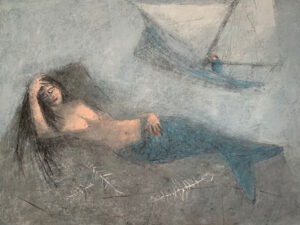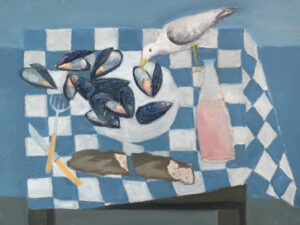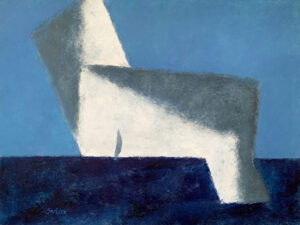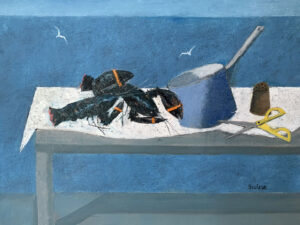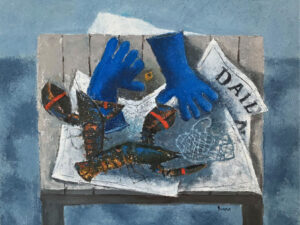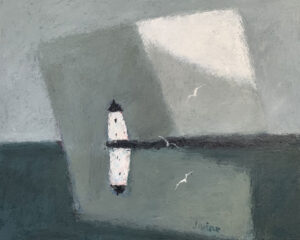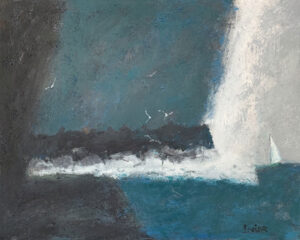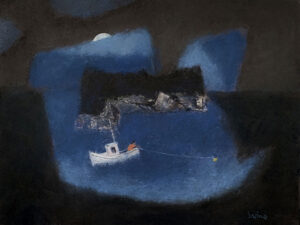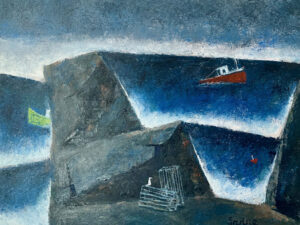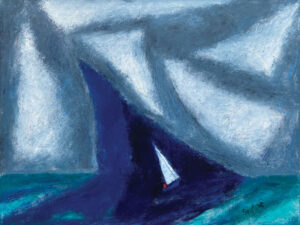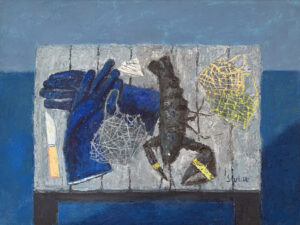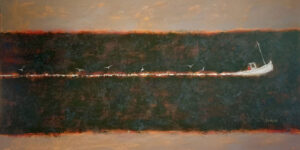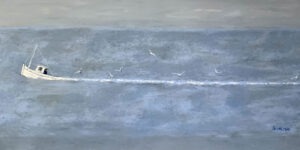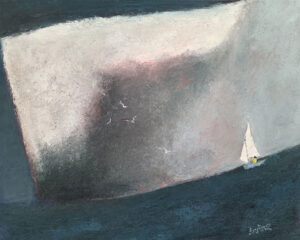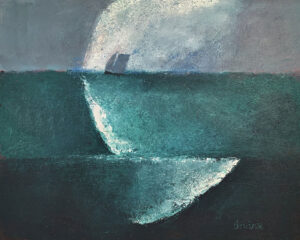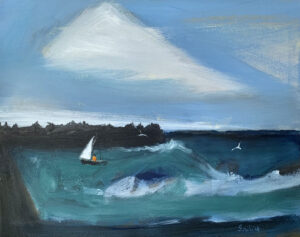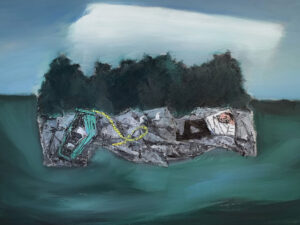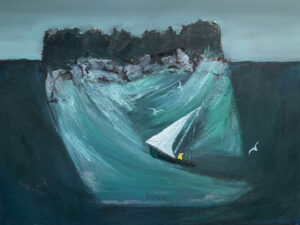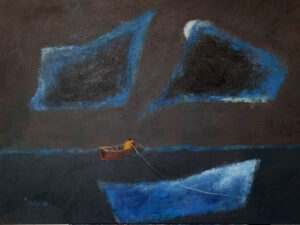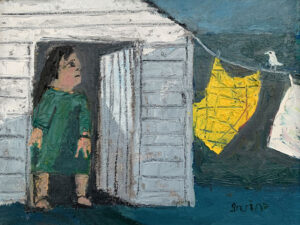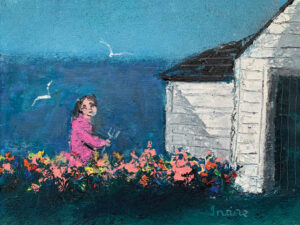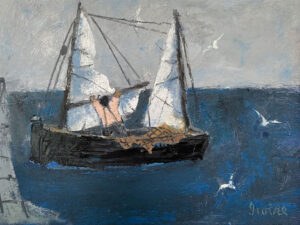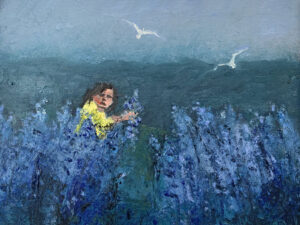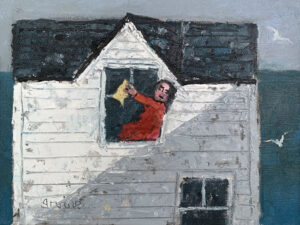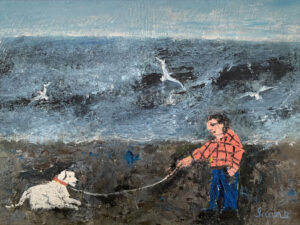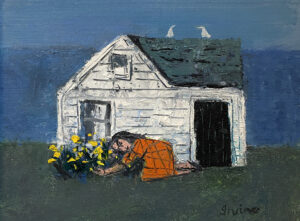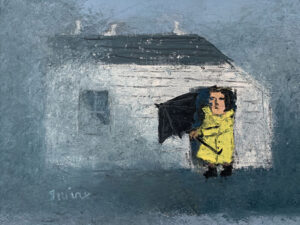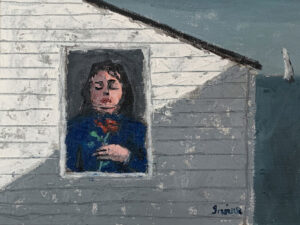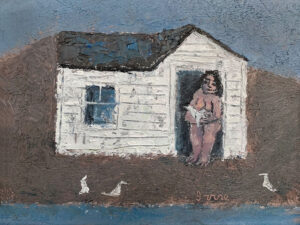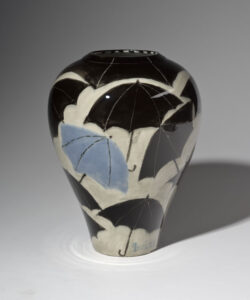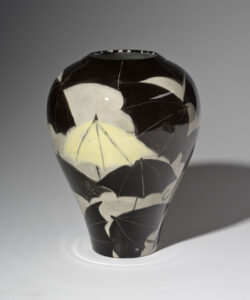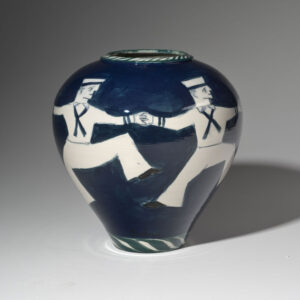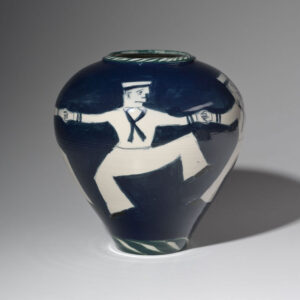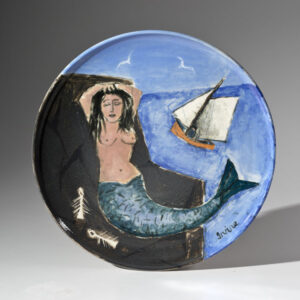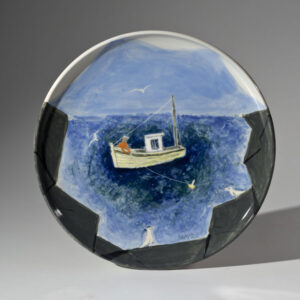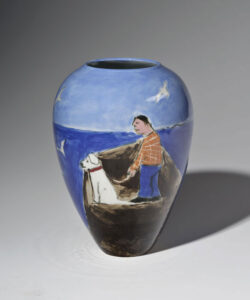July 12 – August 6, 2021
Wiliam Irvine: Sea Change
Courthouse Gallery Fine Art is pleased to celebrate the 90th year of iconic Maine painter William Irvine (b.1931) with a one-man show titled “Sea Change,” and a sneak preview screening of “A Life in Art,” an upcoming film on Irvine’s life and career. The upcoming exhibition and film pay tribute to Irvine’s remarkable accomplishments, whose impressive oeuvre spans seventy plus years and establishes him as a Maine and American master, and a notable and influential twentieth-century Scottish-American painter. A catalogue with an essay by Suzette McAvoy, the former director of the Center for Maine Contemporary Art, is available on request.
“The power of Irvine’s work is his ability to pare a scene down to its essentials—the arrangement and scale of forms, the selection and intensity of colors—while retaining a sensation of physical presence and feelings. His abstracted seascapes are testament to this. Employing the horizon line as the constant, clouds and their corresponding reflections are offered in a great array of shapes, sizes, and colors, conveying the sea’s infinite variety. While seemingly abstract, to those that have experienced life at sea, the effects are accurate, and palpable.
—Suzette McAvoy, except from exhibition catalog
William Irvine was born and raised in Troon, a small town on the Atlantic coast of Scotland, a few miles from Alloway where the poet Robert Burns was born. Irvine became interested in art as a young boy. He majored in art at Marr College, a progressive secondary school in Troon. When the family of whiskey magnate Johnnie Walker heard about two budding artists at Marr, they invited the boys (Irvine and his best friend William Crozier) for a private viewing of Walker’s art collection. This was Irvine’s first opportunity to see original artworks by the masters.
After graduating from with a degree in drawing and painting from the Glasgow School of Art in 1953, and serving in the Scottish army, Irvine moved to the bohemian neighborhood of 1950s Soho London where he rubbed shoulders with the likes of Francis Bacon and Paul Potts, and where he came of age as an abstract painter. During his ten years in London, Irvine exhibited in many galleries, including one-man shows at the Drian Gallery and the Parton Gallery.
In 1968, Irvine moved to downeast Maine, and was immediately drawn to the fishing villages of Corea and Jonesport, whose tidy houses reminded him of the white farms dotting the green hills of Scotland. Here, harbor, boats, islands and the sea and sky, inspired bold new work fueled by two driving forces: abstraction and representation. Irvine’s reductionist sensibilities, and the richness of his textural compositions bring these two antithetical elements into balance.
Two books have been published on Irvine’s work and career: William Irvine: A Painter’s Journey by Carl Little (Marshall Wilkes 2014); and William Irvine: At Home (Marshall Wilkes 2018), a collection of Irvine’s small white house paintings with contributions by several Maine poets.
A Life in Art chronicles the seventy-year career of artist William Irvine (b.1931), an expressionist painter whose abstract overtones and underlying geometric forms make his iconic work both assessable and modern. The film follows Irvine’s life and artistic growth as it spans both shores of the Atlantic—from the village of Troon in Scotland where he was born and raised—to his eventual migration to America and the coast of Maine where he spent the past sixty years living and painting.
Utilizing never-before-seen archival footage interwoven with present-day footage, the film provides an intimate portrait of Irvine’s artistic endeavors as he recounts historical moments during the twentieth century, including World War II Scotland, the gritty, industrialized streets of Glasgow, and the bohemian neighborhood of 1950s Soho London where Irvine rubbed shoulders with the likes of Francis Bacon and Paul Potts, and where he came of age as an abstract painter.
Whisky Wolf Media (WMF) is a media group focused on connecting the stories of everyday people to history through artful films. WMF seeks people who are invisible or overlooked, giving them a voice and animating their stories for future generations to learn from and enjoy. Their motto is: “To seek knowledge from the past is to better understand the future.” Principal David Jester is a filmmaker and a non-fiction published author. He earned his masters in American and New England studies with a concentration in cultural analysis, and a certificate in documentary filmmaking from Maine Media Workshop + College. Jester won an award from the State of Maine for his twelve-part public access television series on public safety, and his film Champ 5 has been shown at multiple film festivals and recognized with several awards. Leigh Doran is an award-winning photographer with ten years of experience in documentary films.
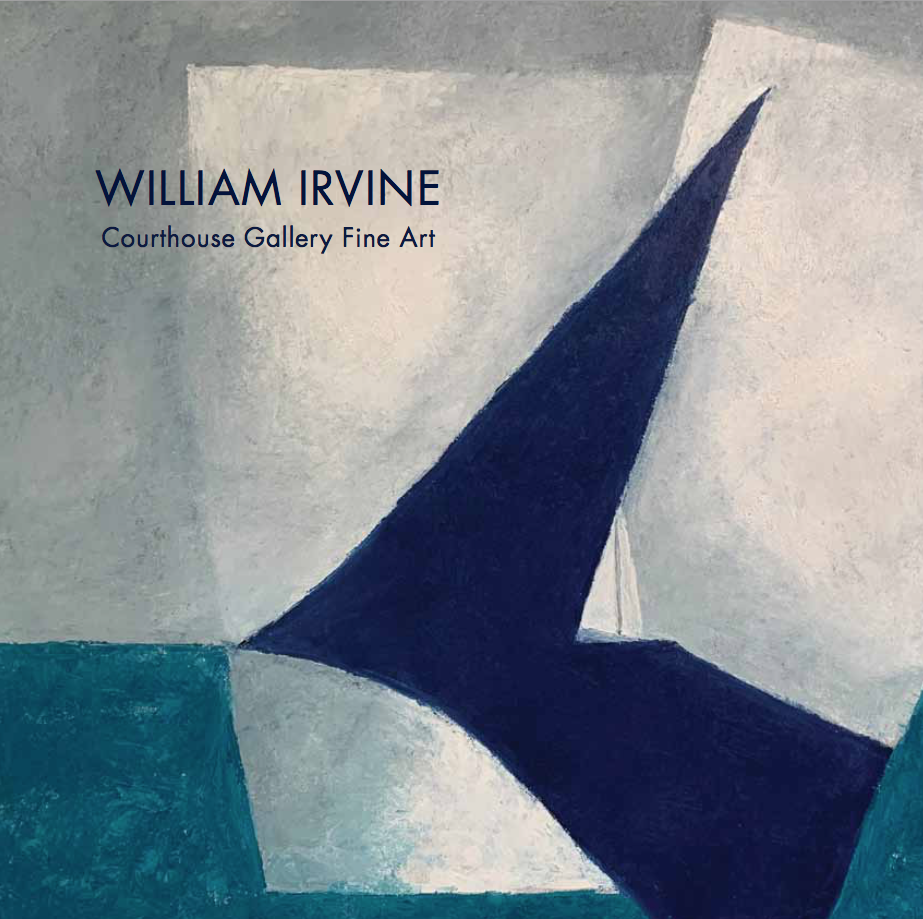
William Irvine: Sea Change
Download Link
Contact Us to Purchase
$30 postage paid in US
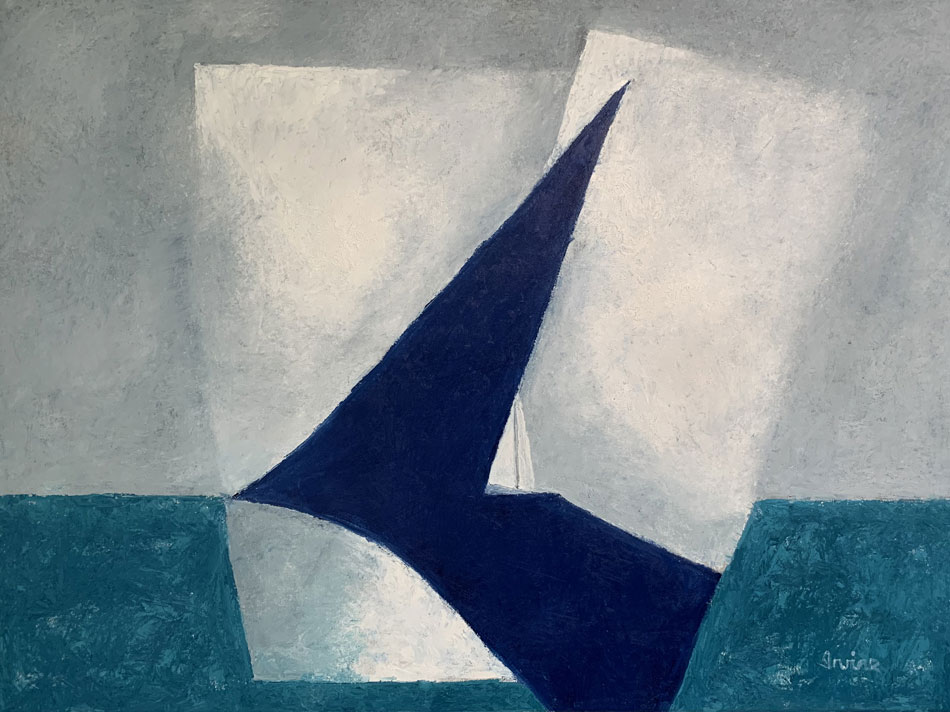 WILLIAM IRVINE
A Break in the Clouds
oil on canvas, 36 x 48 inches
SOLD
WILLIAM IRVINE
A Break in the Clouds
oil on canvas, 36 x 48 inches
SOLD 

